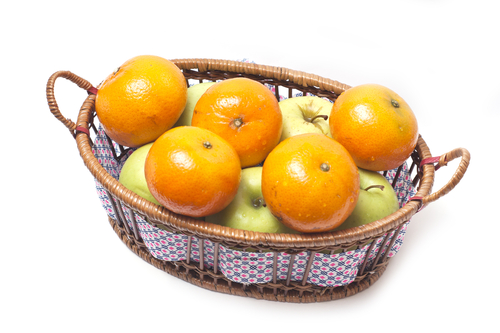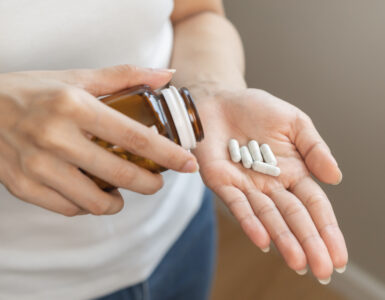Kristi Spence, dietician and Director of Health and Wellness for Mountain West Dairy Promotion, shows us which foods can help boost immunity and protect against injury.
When it comes to trying to avoid illness, reduce symptom severity, or shorten a cold’s duration, food can only do so much, and yet grocery and drug store shelves abound with foods claiming to “support, boost, or enhance” the body’s immune system. Scientists know that certain compounds play an integral role in keeping the immune system working properly, namely antioxidants (vitamins C & E, selenium, and other plant compounds), iron, zinc, vitamins A, D, B6, B12, and omega 3 fatty acids, but this is a case where if some is good, more is not necessarily better. Deficiencies in these micronutrients negatively impact immune function and increase susceptibility for illness and/or injury; however, such deficiencies are rare outside the developing world. In most cases a balanced, varied diet provides appropriate amounts of all important immune factors. Giving your body more will not give you super powers. Think of your car – oil is required for proper functioning of the engine. If the engine is low in oil, adding more benefits the functionality of the vehicle, yet if oil levels are adequate, adding more won’t supply an added benefit.
In most cases, supplements are not warranted either for preventing disease or promoting healing. The body knows what to do with the vitamins and minerals that it obtains from various food sources and these compounds, when in food form, interact synergistically with one another. Often the case that is made for supplementation is too reductionist and takes important dietary compounds out of context. In some cases, specifically cases of deficiency, poor diet, and extreme environments supplementation may be necessary.
Keeping yourself healthy involves more than just eating well…an overall healthy lifestyle is key. Here are some tips for maintaining your health throughout the year.
– De-stress! Added stress compromises immune function and increases susceptibility to illness.
– Sleep! When the body is run down it is more difficult to fight off infection. Little sleep presents an added stress on the body.
– Wash your hands – proper hygiene reduces the spread of infection and disease.
– Eat fruits & vegetables – the vitamins and minerals we find in fruits and vegetables are crucial for maintaining overall health
– Consume lean protein (low fat dairy, lean meats, beans, nuts)
– Take a stroll outside – vitamin D plays an important role in immune function, and scientists are finding that many Americans contain suboptimal amounts. In summer months, 10-15 minutes of sun exposure (sans sunscreen) will supply adequate amounts. Utah winters present a challenge, since at our Northern latitude the angle of the sun doesn’t supply direct UVB rays. If you are low, a supplement during winter months may be helpful. Food sources are scarce, but fortified dairy as well as fatty fish (primarily salmon) are great options.
– Know your needs…aging decreases the body’s ability to absorb vitamins and minerals. Small doses of vitamin E (200IU) in an elderly population may help with immunity. In this population a good multi-vitamin may also be beneficial.
– Exercise! Nothing is better for improving immune function than moderate exercise.
When it comes to healing, whether from an injury, surgery, wound, or illness, the body has increased demand for certain nutrients. Eating enough of the right types of foods can promote healing.
– Protein (meat, poultry, fish, eggs, beans, soy, dairy)- the body’s protein needs are heightened during times of physical stress. Incorporating some with each meal and snack will help facilitate healing
– Iron (meat, fish, eggs, fortified cereal, green veggies). Low iron can slow healing and increase injury risk. Eat iron-containing foods, but since iron can be a pro-oxidant and do damage to the body in high doses, don’t supplement unless under the direction of a physician or dietitian.
– Vitamin C – an antioxidant and precursor to collagen synthesis (connective tissue, bone), vitamin C is important for healing. Add an extra fruit or veggie. Remember that vitamin C is best absorbed in 250mg doses.
– Healthy fats – salmon, nuts, seeds and avocado can help reduce inflammation
– Pineapple & Turmeric contain important antioxidants that may present an added benefit. Consider a curry or a bowl of pineapple when recovering from injury.
– Calcium (dairy, soy, green veggies and nuts) adequate amounts may reduce risk for bone-related injuries. Food sources are best.
For more information contact:
Kristi Spence MS, RD, CSSD
Director of Health & Wellness
Mountain West Dairy Promotion
1213 East 2100 South
Salt Lake City, UT 84106
kristi.utahdairy@gmail.com















atarax drug how does hydroxyzine work for anxiety hydralazine 25 mg prescribed for
atarax uk buy hydralazine for anxiety hydralazine 25 mg prescribed for